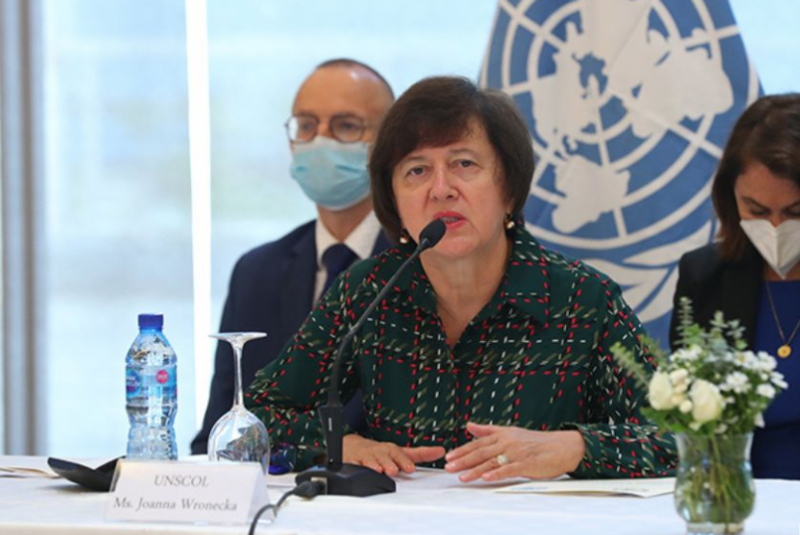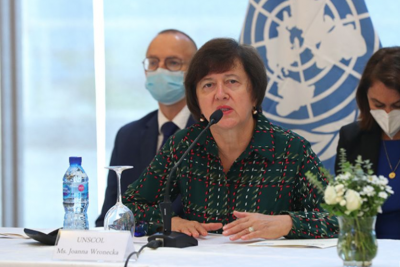In line with a previous agreement, the Parliamentary Committee on Foreign Affairs and Emigrants held a session yesterday in the Niqab Square to consult with the United Nations Special Coordinator in Lebanon, Joanna Frunceska, to discuss the details of Resolution 1701 and the circumstances that led to its issuance, as well as what Lebanon can do diplomatically to resolve issues and points that remain unresolved with the Israeli occupation, especially since the situation post-Gaza will not be the same as before in terms of the existing conditions along the southern border according to the UN perspective.
"An-Nidaa Al-Watan" learned that the agreement with Frunceska was to have the meeting with one of her advisors to explain the circumstances and foundations of Resolution 1701, particularly the emphasis on land, sovereignty, and security, focusing on the political aspect that might secure stability in the region. According to the information, Frunceska discussed during the session how each party interprets the text according to its own view and desires; the Israeli side understands the text as it wishes and commits violations, while the MPs explained to the UN official that Lebanon's actions are a response to Israeli aggressions.
The Special Coordinator for the UN in Lebanon focused on the necessity of reactivating the trilateral committee that used to meet in Naqoura, which had stopped meeting due to the COVID-19 pandemic and subsequent issues, emphasizing that it will play an essential and significant role politically after the end of the Gaza war.
Furthermore, the focus was on the 13 contentious points along the border with the occupied Palestinian territories. Frunceska pointed out that seven of these points have been resolved, leaving the matter of Shebaa Farms and Kfarshouba Hills outstanding. She presented the maps that the UN received from Lebanon in 2000, which pertain to defining the borders for the year 1966, affirming and highlighting Lebanon's sovereignty over this area.
Several MPs asked her whether these maps indicate the Lebanese ownership of Shebaa Farms and Kfarshouba Hills, to which she replied, "Yes, these maps show the Lebanese status of this area." However, after some time, for unknown reasons, the Lebanese state expressed a note about the possibility of a shared issue with the Syrian side in this area.
It was clarified regarding the joint legal records between Lebanon and Syria and the agreement between the two sides on the Lebanese status of this area, using real estate documents registered in Lebanon's real estate offices as evidence that this land is Lebanese. There was a consensus among the parliamentary attendees on the Lebanese ownership of this land, and they agreed that if there is any ambiguity, this area could remain, according to the United Nations perspective and with Lebanese consent, under UN supervision while awaiting completion of final arrangements and submission of records and maps to the UN.
Frunceska indicated that the situation post-Gaza would not be the same as before, especially concerning the status quo that no longer holds, and there is a need to conclude the file of the 13 unresolved points and return to the 1949 armistice agreement. She emphasized that this is something the Lebanese side must work on achieving through potential negotiations, linking this type of negotiations and agreements that could occur to the necessity of having an effective executive authority and the presence of a president, asserting that the parliament has a fundamental role during this period amid the presidential vacancy through such meetings.
Notably, Frunceska stated that Lebanese individuals need to agree amongst themselves regarding the status of the weapons present in the south, where she was reminded that the permanent and sustainable solution lies in implementing UN Resolution 242 and granting the Palestinians their rights. The meeting lasted over an hour, during which Frunceska noted that what is happening today in the region might represent an opportunity for the diplomatic solution that the UN believes in and that Lebanon can focus on during this period.




